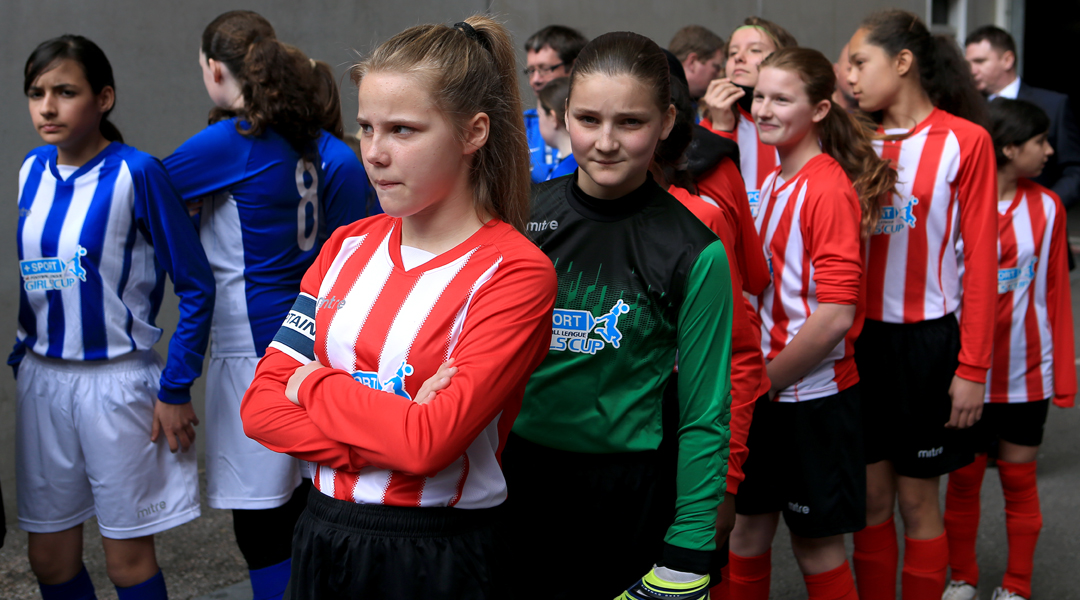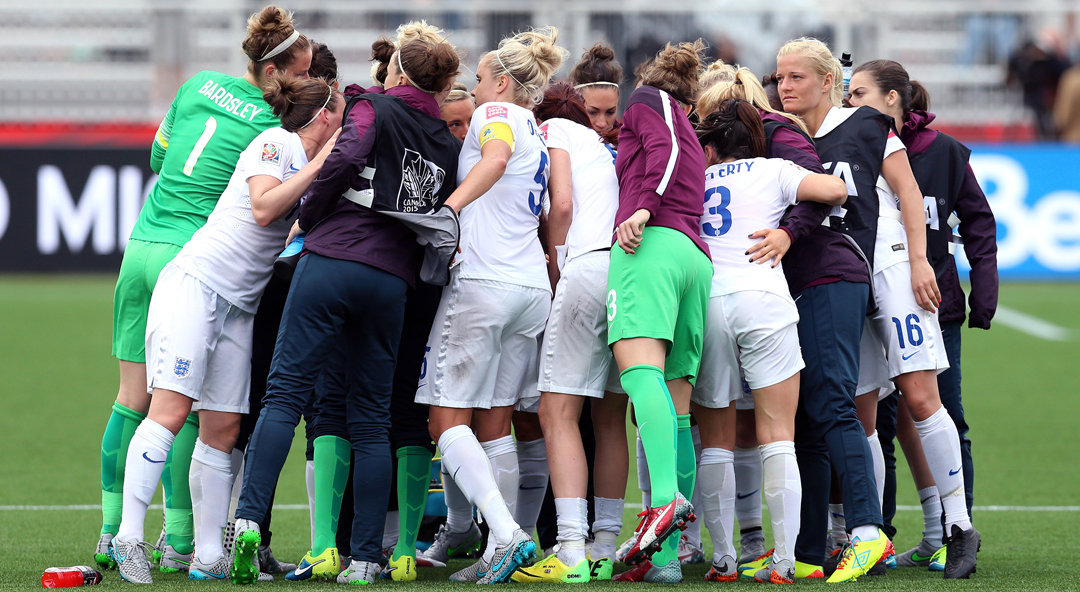The state of the game: How girls are catching up with the boys at grassroots level
Catherine Etoe provides an overview of how girls' football in England is on the up, and where it goes from here...

The best features, fun and footballing quizzes, straight to your inbox every week.
You are now subscribed
Your newsletter sign-up was successful
Want to add more newsletters?

Five times a week
FourFourTwo Daily
Fantastic football content straight to your inbox! From the latest transfer news, quizzes, videos, features and interviews with the biggest names in the game, plus lots more.

Once a week
...And it’s LIVE!
Sign up to our FREE live football newsletter, tracking all of the biggest games available to watch on the device of your choice. Never miss a kick-off!
Join the club
Get full access to premium articles, exclusive features and a growing list of member rewards.
When England legend John Terry proudly posts clips of his young daughter playing for Chelsea under-9 girls’ team on the internet, it's hard for women’s football enthusiasts not to pinch themselves.
A generation ago, players like former England winger Sue Smith had to join her brother’s club to get a game because there were no girls’ teams in her area. When the coach of that boys’ team told Smith she would one day play for England, she thought he meant the men – she had no idea women played for their country too.
These days, 2.89 million females play the game and England women are now so popular they can sell 45,000 tickets to a match at Wembley Stadium.
More than 1,500 adult women's teams now compete nationwide, ranging from county to elite level. At the top end there are 96 teams in the FA Women’s Premier League, 18 in the FA Women’s Super League.
No more netball?
All told, the number of women’s teams has grown by 21% since 2009. More girls play league football than ever before too; over 64,000 at more than 3,500 FA affiliated teams, a rise of 19% since 2009. Football is now the No.1 team sport for women and girls in England.
“Wherever a girl lives there will be a league she can access,” says the FA’s Women’s Football Development Manager Rachel Pavlou. “And these leagues are very keen on doing the job right.”
The best features, fun and footballing quizzes, straight to your inbox every week.
By that she means encouraging clubs to reach FA Charter Standard so they are led by Level 1 coaches at the very least, and that they target more than just winning, emphasising personal development too.

The football these youngsters play for under-7s up to 16 ranges from five, seven, nine and 11-a-side to fit local needs. The hope is that by allowing these girls more touches of the ball, they will enjoy their football, develop their skills and stay in the game.
FA leagues are not the only show in town, though – girls’ football is played at most schools and council sports development teams also run leagues.
Those who really shine and get noticed doing so can take their football further, with professional levels of training being offered by FA Centres of Excellence and Player Development Centres.
Around 60 of these exist and the so-called ‘England Talent Pathway’ they create currently caters for 3,756 girls, leading them on to England trials and camps.
The FA continues to tinker around the edges of this system, launching a pilot in the south-west of England that replaced local Centres of Excellence with FA Advanced Coaching Centres, allowing girls to stay with local teams while getting extra weekly sessions from top level FA coaches.

“It’s exciting because we have more talented girls now going to our regional south-west centre than ever before,” says Pavlou. “There are more grassroots clubs in the south-west now because they haven’t lost their most talented girls, and some of these are benefiting from playing in boys’ grassroots teams due to the changes in our mixed rules.”
Age of uninterest
Those changes mean the upper age limit for mixed football is now 18, in line with several top European countries. This not only gives girls a choice of where they play, allowing them to join in with male friends if they wish.
Such moves may help keep females in the sport; Diane Culligan, who has been involved in girls’ football for over a decade at London-based Hampstead FC, says retention can be an issue.
“When they get to a certain age a lot of girls give up,” she says. “They just grow out of love with football, it’s different to boys. Equally, girls who are good at football are often good at other sports as well so there’s that competition to deal with too.”

Like many at the coalface, Culligan welcomes any initiatives that build the grassroots. “Grassroots costs money, the professional game makes it, but if we don’t have a grassroots game we won’t have a good professional game,” she adds.
None of this is lost on the FA's Pavlou, who points to a flagship partnership with 88 professional men’s clubs that offers fun football sessions for 14- to 25-year-old women. Around 40,000 will have taken part by the end of July 2015 and the hope is that extended programmes such as these will help them develop a long-term passion for football.
On a more introductory level, the FA’s after-school, intra-school and casual football sessions such as ‘FA Skills’, ‘Football Mash Up’ and ‘Just Play’ add another layer. Chiming in with the interest generated by the current Women’s World Cup, the FA have just announced a month of free football sessions for females.
Altering attitudes
It may seem like small beer, but every little helps, particularly in light of a new FA survey of seven- to 11-year-old girls which found that only 41% have played by the age of 10 compared to 95% of boys. Girls’ sides make up just 3% of mini soccer teams, and four out of five girls don't feel confident playing kickabout.
Perceptions of a girl’s place in the game are hardly encouraging either: only 56% of them think of football as a sport for girls and not all dads are of the John Terry variety, most more likely to put their daughters off playing than they would their sons.

With this in mind, the FA has launched WE CAN PLAY, a campaign that aims to get 100,000 girls and parents to sign up and show support for girls’ football.
“Let’s have an open and honest discussion,” says the FA’s Director of the National Game and Women’s Football, Kelly Simmons. “In doing so we want to shatter the myth that football is for boys, and give thousands of girls the opportunity to enjoy our beautiful national game and all the benefits of taking part in team sports.”
More good stuff like this on the Women's World Cup 2015
Continental continues to support the growth of women's football in England. From grassroots sponsorship and community programmes, to the FA WSL, women's FA Cup and England Women's team, Continental is committed to providing a pathway for the next Duggan, Aluko or Carney.

 Join The Club
Join The Club










